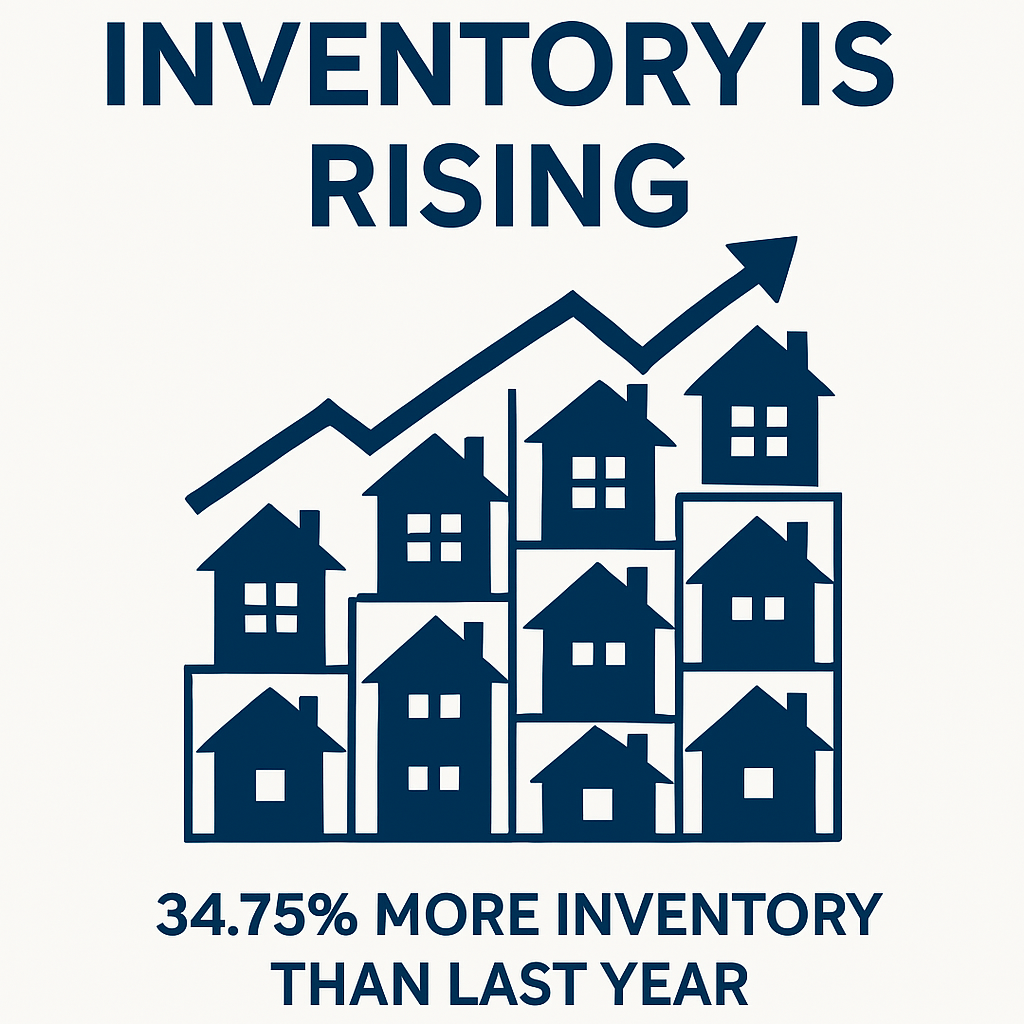Looking For Your Next Home?
Is Financial Turmoil Already Affecting the Housing Market? Here’s What I’m Seeing
With everything going on in the financial world lately—stock markets taking a dive and economic uncertainty everywhere—it’s natural to wonder how fast all this chaos could start shaking up the housing market.
Believe it or not, we’re still seeing signs of buyer activity. Weekly pending home sales are actually coming in a couple of percentage points higher than this same time in 2024. So while the markets feel like they’re in free fall, real estate is holding its own... for now.

Rates vs. Recession: Which Wins?
There are two forces pulling at buyers right now: interest rates and the overall health of the economy. If mortgage rates drop, that typically boosts demand. But if people start losing jobs, feeling less secure financially, or watching their investment accounts shrink, that can chill the market fast. So the question becomes: what happens if rates fall because the economy tanks? Will cheaper borrowing outweigh broader financial fear?
That’s the tough part—we haven’t had to seriously factor in economic decline in about 15 years. The housing market has mostly followed interest rates: rates go up, demand cools, and inventory builds. Rates drop, and things heat up again.
Lately, we've had high rates and strong job numbers, which has helped keep things stable. But if job losses start mounting, we could see a slowdown in household formation and demand—both for homebuyers and renters.

But Here’s What Makes This Time Different
American homeowners are sitting on a lot of equity and some of the best mortgage rates in history. The average loan-to-value ratio is just 47%, and most people have those ultra-low 30-year fixed rates. Even if home values dip, it doesn’t mean we’re headed for a crash like 2008. People aren’t walking away from homes they can afford and that are locked in at 3% interest.
Let’s say someone loses their job—they’re probably not rushing to sell and rent, because odds are, their current payment is way cheaper than what they'd pay in rent. That low mortgage rate becomes something they're going to fight to keep.
What the Numbers Are Telling Us Right Now
- Pending Sales: Last week, there were 87,000 new pending home sales (72,000 single-family homes and 15,000 condos)—the highest we’ve seen since April of last year. That’s an 11% bump compared to the same week in 2024. If the market keeps this momentum, we might actually see some modest growth in home sales through April—unless things take a serious turn for the worse financially.
- New Listings: Inventory is finally climbing. We had 72,000 new single-family listings last week—up 5.8% from the week before, and 31% more than this time last year. That’s still shy of pre-pandemic norms (back in 2019 we had about 85,000), but it’s a healthy trend overall.
- Active Inventory: We’re now at 691,000 unsold single-family homes on the market, up 2.3% this week alone. That’s 34.75% more than last year. So while listings and supply are growing, it’s not a surge—just a slow climb toward normal levels.
- Home Prices: The median price for newly pending homes this week was $397,500—basically flat compared to last year (just 0.25% higher). Some states like Texas, Florida, Arizona, and even South Dakota are already showing year-over-year price declines. We could see more states follow, but it’s not anything dramatic—think 1% to 2% drops, not a crash.
- Price Reductions: 35.1% of listings have seen price cuts—more than any April in the last decade. That tells us demand is still soft in some places. But interestingly, those cuts didn’t spike this week, which could mean buyer interest is holding steady.

What to Watch Moving Forward
If fear really starts creeping into the housing market, we’ll probably see it show up in the data pretty quickly—especially in price reductions and new listing trends. But for now, it seems like some buyers are still moving forward, and if mortgage rates continue to drop, that could even give the market a bit of a boost in the short-term.
It’s a weird mix right now. We're seeing stronger buyer activity, growing inventory, and stable prices—all while the broader economy feels shaky. It's a good reminder that real estate doesn't always follow the same timeline as the stock market.
Like this article? Check out my last one here